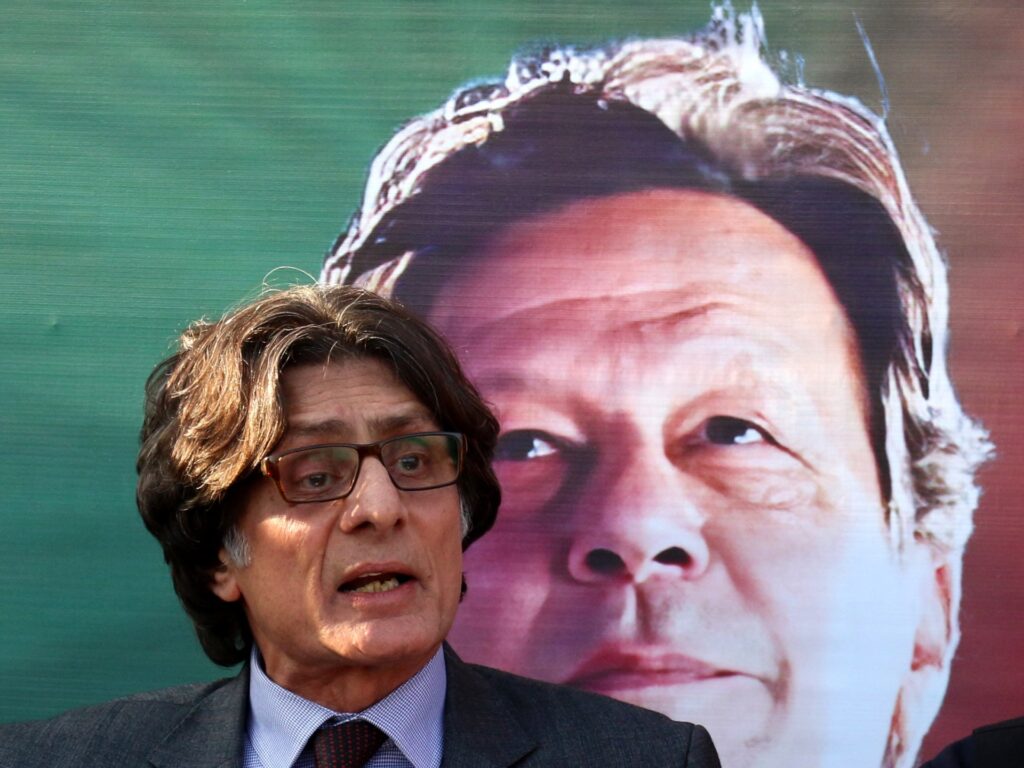Islamabad, Pakistan – Five days after Pakistan's general elections, two rival political parties, Pakistan Tehreek-e-Insaf (PTI) and Pakistan People's Party (PPP), both announced plans to form a government, with PTI forming an alliance with religious parties. PPP ended up supporting its rival. Pakistan Muslim League-Nawaz (PMLN).
The PTI leadership announced on Tuesday that independent candidates will join a coalition with the minority party Majlis Wahdat Muslimeen (MWM) to form a federal government in Punjab.
The party also said its candidate in Khyber Pakhtunkhwa province would seek to form a government in alliance with another religious party, Jamaat-e-Islami (JI).
Thursday's election left the responsibilities divided, with no party able to secure a majority in parliament. Independent candidates affiliated with jailed former Prime Minister Imran Khan's PTI party won the most seats. However, forming a government still requires membership in a political party or coalition.
Announcing the coalition plan on Tuesday, PTI spokesperson Raof Hasan said he had been ordered by Khan to approach all political parties except “PPP, PMLN, MQM” or the Muttahida Qaumi Movement.
“Imran Khan has sent a clear message that forming a government is the right of the winner of the elections,” Hasan said at a press conference in Islamabad.
Khan, a former cricketer, was ousted from power in a parliamentary no-confidence vote in April 2022. PTI was also forced to field a candidate as an independent after its cricket bat, the symbol of the election, was taken away in January for violation of election laws.
Khan has insisted that he will not get involved with three-time former prime minister Nawaz Sharif's PMLN or former foreign minister Bilawal Bhutto Zardari's PPP, calling them “corrupt.”
Suspicion of vote tampering
Thursday's polls showed PTI-backed candidates coming out on top with 93 seats in parliament, while the PMLN became the single largest party with 75 seats. PPP was third with 54 seats.
To form a government, a party or coalition must win a simple majority of 134 of the 266 seats in parliament voted in a general election.
In addition to the 266 directly elected seats, an additional 60 seats are reserved for women and 10 for minorities.
These seats are allocated to each party according to the proportion of seats they win, but independent parties cannot receive these allocated seats.
Two political parties can form a coalition and still maintain their own identities and policies, but once an independent candidate joins a party, he or she must submit to that party's discipline and decisions. .
The PTI claimed that its sole majority in the election was stolen due to alleged tampering and vote manipulation.
PTI caretaker leader Barrister Gohar Ali Khan said on Tuesday that he believed the party had won 180 seats instead of 93, adding: “We will share the white paper with all the details.” he added.
Neither Hasan nor Gohar Ali Khan mentioned who the party's candidates for the positions of prime minister, speaker of parliament and deputy speaker would be.
PPP support for PMLN
Hours after PTI's announcement, the PPP announced it would work with the PMLN to form its own government, but said the PPP had decided not to play any role in the cabinet.
PPP Chairman Bhutto Zardari said his party supports the PMLN's prime ministerial candidate and stands in line with the party.
He said he had no intention of putting his name forward as a candidate for prime minister.
“We do not have the power to form a government in the federation, so we will not run for prime minister,” he said at a press conference in Islamabad on Tuesday.

Bhutto-Zardari expressed a desire to see her father, former president Asif Ali Zardari, return to office, and announced that her party would field candidates for Senate president and parliament speaker.
“We conducted this election based on a manifesto of public importance. We want to restore political stability and put an end to this toxic political environment,” the PPP chairman said. Stated.
“Politics of Conflict”
Political analyst Benazir Shah said the PPP's decision seems like a wise move.
“The PPP has been trying to make inroads in Pakistan's most populous province, Punjab, in recent years. “This is an opportunity to mobilize the party in the state over the next few days,” she told Al Jazeera.
“PPP is looking to 2029, not 2024.”
Regarding PTI, analyst Mehmal Sarfraz said it is the party's responsibility to ensure that the winning candidates are subject to party discipline and join the MWM so that they cannot jump ship.
However, she questioned Imran Khan, who refused to associate with other political parties.
“This is not about any principle. This is about Khan's story of hatred towards these parties and his divisive politics. It is unfortunate that PTI has no intention of negotiating with other mainstream parties. “Democracy is also about coexistence and tolerance of other people's perspectives, but PTI's politics are essentially 'either with us or against us,'” she told Al Jazeera.
Mr. Shah agreed, saying that while election results showed that Pakistani voters wanted the PTI to remain in power, Mr. Khan seemed still committed to “confrontational politics.”
“Mr Khan's refusal to work with the PPP to form a government shows that he is not yet ready to work with political parties for the greater good of democracy,” she added.
Sarfraz believed that given the circumstances, it was the right decision for the PPP to join the PMLN alliance, adding that it is the PMLN that needs the PPP and not the other way around.
“No party has the numbers to form a government on its own. Ideally, the PPP would have wanted Bilawal Bhutto Zardari to become the leader of the opposition. With this attitude, their options are limited. So this was virtually the only thing they could do,” said the Lahore-based analyst.

